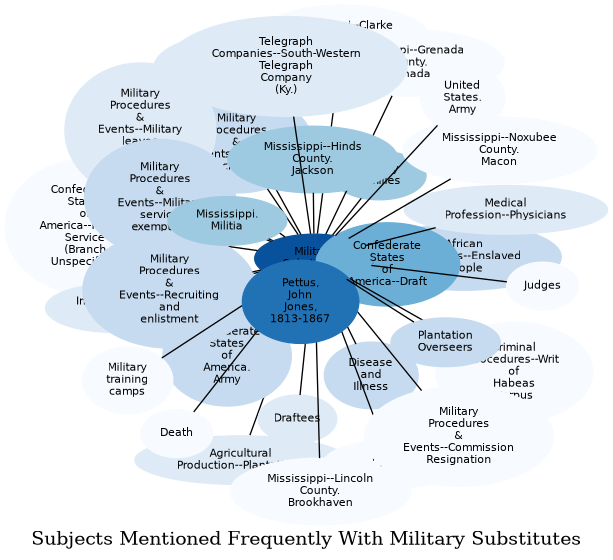Description
The Union and Confederacy allowed drafted men to supply another man to fight in their place, referred to as a military substitute. As this provision required capital, it led to the popular criticism that the war was a "rich man's war and a poor man's fight."
Under Confederate conscription (or draft) laws, a draftee could hire another man who was exempt from the draft, often due to their age, trade/profession, or lack of citizenship, to serve in their place. Once arranged, they would pay a fee to the Confederate government and a large sum (typically ranging between $800–$1,500 but sometimes reaching as high as $3,000 specie) to the man serving in their place. While this practice was widespread, historians estimate between 50,000–150,000 men in Confederate service were military substitutes, it was publicly unpopular. In late 1863, the CSA Congress abolished substitution and in January 1864 a second act required that the men who had hired substitutes report for military duty. (Library of Congress; NCpedia)
The Union passed similar substitute provisions. When the US Congress passed the Conscription Act of 1863, they similarly included a provision allowing draftees to permanently escape conscription by hiring a willing substitute to serve in their place. (National Park Service)
See also: https://blogs.loc.gov/law/2012/11/civil-war-conscription-laws/
Related Subjects

The graph displays the other subjects mentioned on the same pages as the subject "Military Substitutes". If the same subject occurs on a page with "Military Substitutes" more than once, it appears closer to "Military Substitutes" on the graph, and is colored in a darker shade. The closer a subject is to the center, the more "related" the subjects are.